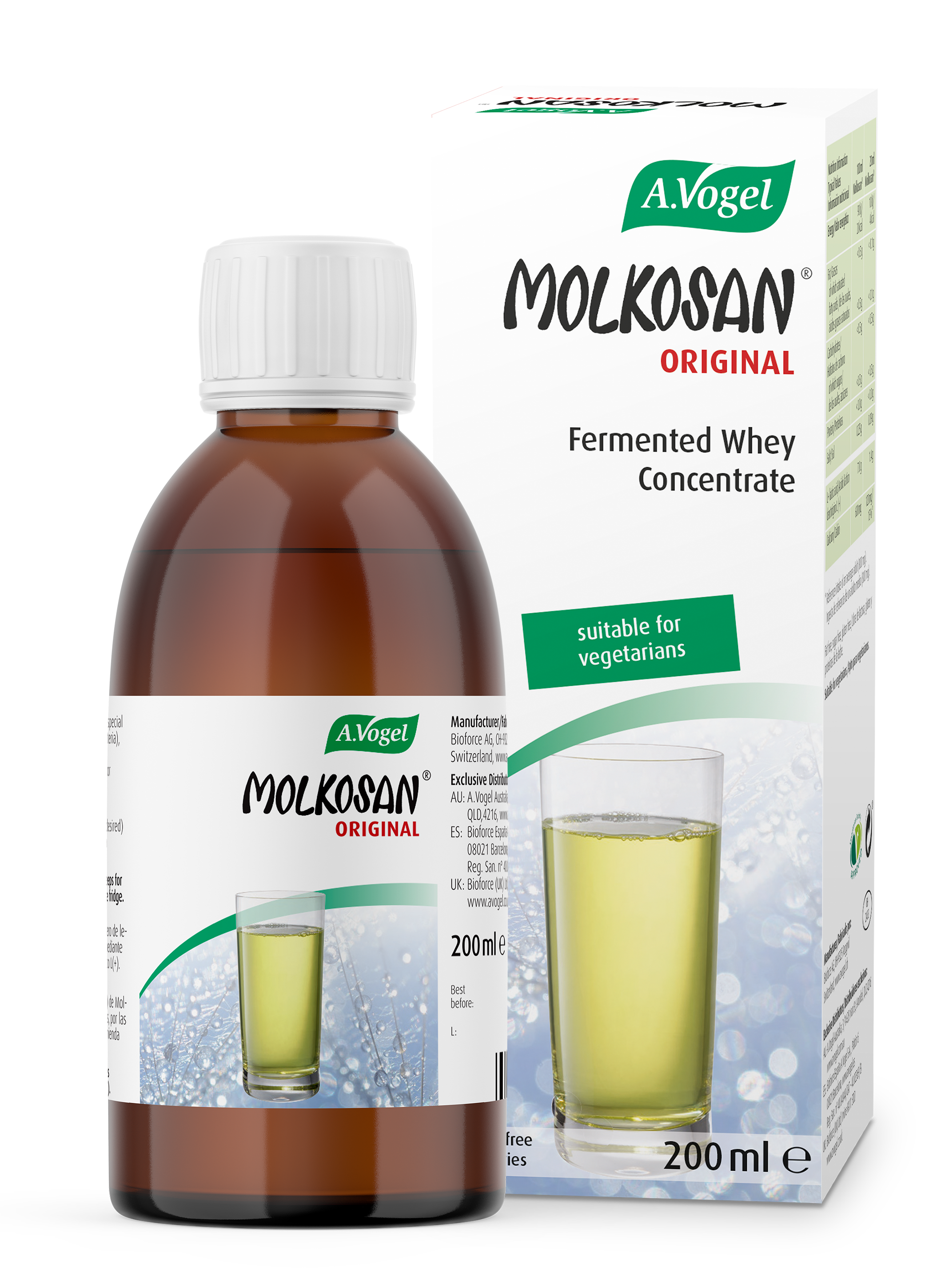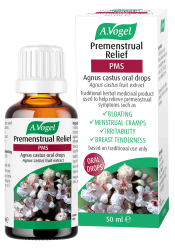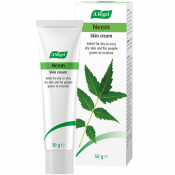Hormones and problem skin
Fluctuating hormones are notorious for causing skin problems –many of you will have battled greasy, spotty skin during your teenage years as your hormones struggle to settle down. However, for many women this can continue into adulthood and these problems very often flare in sync with your menstrual cycle. Acne, greasy, dry or sensitive skin can easily crop up, often alongside all of the other monthly symptoms you are currently juggling!
Around the time of your period, you are more vulnerable to problem skin due to low levels of oestrogen which usually helps to keep your skin looking subtle and hydrated. Click the link to learn more about hormonal skin breakouts around the time of your period, why this can happen and how a number of home, herbal and conventional treatments can help.
Now then, is there anything else you should consider other than hormones? What about the time of the year? You might be surprised to know that the time of the year can also affect your skin – let me explain.
Does your skin respond to the seasons?
A number of seasonal factors can have surprising effects on your skin; from humid summer days to harsh wintery winds, your skin often doesn’t know what’s hit it! Environmental factors can really cause havoc with your skin – particularly if you already have an underlying condition such as eczema or psoriasis. Below I outline some of the tricky seasonal factors to take into consideration for the sake of your skin.
Spring & Summer
Many of us long for spring and summer – the longer, warmer days, the pretty flowers coming into bloom and you’re finally in the home straight for that long-awaited summer holiday, but, is your skin as overjoyed as you? Possibly not! I explain why below.
- Flowers, pollen and hayfever – As much as many of these flowers are lovely to look at, it also means the pollen count will most likely be creeping up. Unfortunately, numbers of people suffering from hayfever has trebled in the last 20 years – more and more people are being affected. With global warming thought to be one of the factors behind this increase, this pattern is likely to continue. Hayfever is an allergy to pollen and it typically causes the mucous membranes of the eyes and nose to become inflamed. ‘Inflamed’ being the key word. Inflammation causes the release of a chemical called histamine. Histamine is involved in local immune responses and guess what? Once produced in excess it can affect your skin too. Not many people associate hay fever with their skin but actually the presence of histamine (especially in combination with low levels of oestrogen!) can make skin appear red, blotchy, itchy and hives may even crop up in extreme cases
- Humidity and heat rashes – As temperatures start to soar as summer approaches, your poor skin can suffer. Heat rashes can emerge, for example prickly heat. Sweating and humid surroundings can dry out and aggravate eczema-prone skin. As the skin dries out and cracks, bacteria are more able to make their move on already troubled skin. However, not to put a total downer on summer, there is some evidence to suggest that certain wavelengths of sunlight can help your skin. Summer sun can help to increase the production of vitamin D in the skin which is thought to offer many health benefits
- Sun damage – Ok, so sunlight can be helpful for eczema and other skin conditions in moderation, but I do need to stress that too much can be detrimental and you should always use sun cream. Use a hypoallergenic sun cream and be cautious in the sun when it’s strongest between 10am and 4pm. Sunburn causes local inflammation and will cause the skin to become very dry during the recovery phase
- Infected insect bites – Jetting off abroad often means you are more at risk of acquiring some mosquito bites. Mosquito bites initiate a local immune response– this is why the area around the bite often can become, red, swollen and itchy. In some cases, the bites can even become infected or a more pronounced allergic reaction can be triggered which can cause a larger area of the skin around the bite to become affected. You should seek medical advice if you suspect you are reacting adversely or if a bite has become infected.
Autumn & Winter
With winter comes cold weather, harsh winds, and ramped up central heating systems. These extreme conditions can be a shock to the system and your skin can kick up fuss; let’s try to understand why
- Colder air – Harsh wintery conditions aren’t ideal for sensitive skin, they can easily cause your skin to dry out. Dry skin, means sensitive skin; it can essentially result in the skin cell’s defences being temporarily breached. Skin cells should are lucky enough to have a nice moist, protective lipid barrier. However, if this is affected in some way, you could have a problem. As a result of this, conditions such as eczema, rosacea and keratosis pilaris are often more likely to flare up in colder weather. Interestingly, the harsh changes in temperature we are often subject to during winter are also thought to have a part to play – central heating systems going full blast inside one minute, and extreme cold conditions outside the next, isn’t great for your skin and it can easily dry out as a result
- Allergies, colds and infections – So, being stuck indoors with doors and windows shut and air con systems blasting can dry out your skin. But, being stuck inside can also mean that any allergies you might have to dust or pets, could flare up. Your skin can become victim to excess histamine if you are reacting to something in the vicinity and runny noses or streaming eyes can further dry out the sensitive skin on your face – let’s not forget that lower levels of oestrogen is most likely making the skin on your face feel thinner and more sensitive already if your period is due...
- Stress can crop up – Winter can be quite a stressful time for number of reasons, but for many, the prospect of Seasonal Affective Disorder (SAD) making an appearance is a real worry. Common symptoms of this condition include feeling low in mood, irritable and stressed. During the winter months many people feel more stressed anyway; monthly bills are often higher due to central heating usage going up, pressures of the festive period may be adding to the financial strain and driving conditions as result of bad weather are often a worry. As stress gets on top of you, this can cause breakouts in your skin. Remember, hormone fluctuations won’t be helping and you can feel stressed or anxious around the time your period anyway! It can be a vicious cycle.
So, what can be done to help?
Firstly, I have a few simple top tips that can be done at home which can help troublesome skin:
- Keep hydrated! – Keeping hydrated is the number one rule for supporting your skin. Drink up to 1.5l of plain, still water a day and your skin will remain plump and hydrated – you might just notice that extra glow
- Consider your clothing – This can involve a bit of trial and error as everyone is different but certain materials could be aggravating your skin. Synthetic fabrics are often guilty of irritating sensitive skin so opt for natural materials instead such as cotton – they’ll let your skin breathe better. Be cautious of very heavy fabrics such as wool too which can trigger itching. Be careful not to wear too many clothes in bed either as you don’t want to end up sweating
- Be cautious of hot baths and showers – Very hot water can cause a flare up so turn down the temperature when having a bath or a shower
- Revamp your cosmetics bag – What do you put on your skin on daily basis? Is it possible this is having an effect? Most likely... Try using coconut oil as an organic moisturiser and stick to natural cosmetics. Then, if you feel you need a little extra helping hand, why not try a natural, cleansing facewash.
Next, I want to talk a little more about female hormones. If your skin really is out of control, a hormone imbalance could be at play. Low mood, lighter, infrequent periods and problem skin could suggest you are low in oestrogen and instead progesterone dominant – in which case, soy isoflavones may be one to consider. On the other hand if you have heavy periods and a shorter cycle, Agnus castus may be more suitable.
In addition to these tips, there are some other more general natural remedies that you can add to your regime to help with cyclical problem skin.
Many skin conditions are thought to stem back to the digestive system and I’m a firm believer in supporting the gut first – 70% of your immune cells lie here. Menstrual cycle hormones can have an effect on the gut too so it’s likely to be particularly vulnerable at certain times of the month! Take Molkosan daily as it’s is rich in L+ lactic acid – this helps support the internal environment of the gut and the good bacteria living there.
In addition to Molkosan try our Viola tricolor herbal tincture. This contains fresh extracts of wild pansy which can help to support your natural detoxifying pathways.
Finally, in episodes of flare ups, try applying some Soothing Neem Cream as a topical treatment – this can be applied directly to the skin for the relief of dry, irritated, or itchy skin.
If your skin is really getting you down and home and herbal remedies don’t seem to be helping, it might be time to pay your doctor a visit. They can help you to determine exactly what’s going on. They can take hormonal factors, mood and any allergies you might have into consideration and offer any appropriate treatments. Antibiotics or steroid creams may be required in severe cases in order to get problem skin under control initially. However, be sure to discuss side effects of any medication and what the long-term treatment options might look like.










